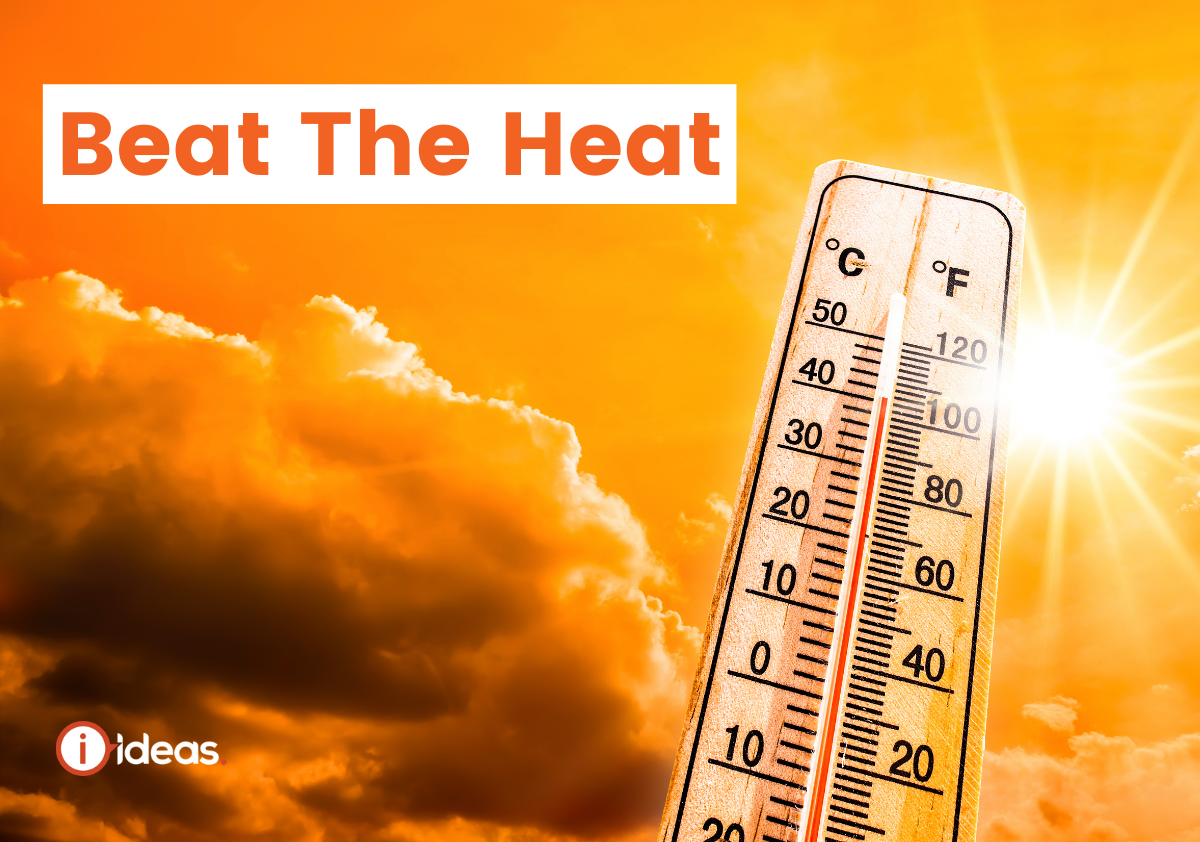Discover the steps you can take to stay cool and healthy as the hot weather approaches.
Having a plan about what you will do when it gets really hot is a good way to keep safe. Keep an eye on the weather forecast so you can be prepared for hot days.
Heat-related illness can be very serious. Early season high temperatures pack more of a punch for people trying to adapt to the warmer weather and with the circumstance of poor air quality if there are bushfires it is a double whammy.
How to keep safe
Staying Cool
- Stay indoors during the hottest part of the day generally, 11 am – 4 pm
- If you don’t have air conditioning, use a fan to cool down the air and keep it moving
- Keep curtains closed to help keep the heat out
- Stay in the coolest room in the house and use the stove and oven as little as possible
- Rest and don't do physical activity during the peak time of heat
Organise to have your groceries or medications delivered to avoid going outside. If possible you may choose to have your health appointments done via telehealth.
If you don’t have air-conditioning, you may plan to go to a cool place such as a library, shopping centre, cinema or swimming pool.
Eating and Drinking
- Do drink plenty of water or diluted fruit juice
- Eat smaller, cold meals, such as salads and fruit, can also help you to keep cool
- Avoid tea, coffee and alcohol
- Remind others to keep drinking including children
If you need to go outside
- Take water
- Have suncream and a hat
- Wear loose clothing
- Tell someone where you are going
- Avoid going at the hottest time of the day
- Try to stay in the shade
Children or animals should never be left alone in a car, even if the air-conditioner is on.
Bushfires and Smoke
- Protect yourself and your family from bushfire smoke by staying indoors
- Have a bushfire plan in place
Do you have a Bush fire Survival Plan? Check our blog on Fire Safety now for resources and information.
Effects of heat on the body
Human and animal bodies are placed under additional strain when there is hot weather.
The chances of dehydration are increased and underlying health conditions worsen.
Heat stress and heat stroke are serious conditions and with any sign of either seek medical assistance immediately.
Who is most at risk?
Everyone needs to take seriously the risk of heat-related illness. Severe illness, admission to hospital and even death are consequences of heatwaves.
People over 75, people with chronic medical conditions or a disability, infants, children and people living alone are particularly vulnerable.
The elderly, whether neighbours, friends or relatives may appreciate a call or visit to see how they are faring in the hot weather. An invitation to spend the day with you, especially if you have air conditioning may be welcomed until cooler weather returns.
Signs of heat-related illness
- Dizziness
- Tiredness
- Irritability
- Thirst
- Fainting
- Muscle pains or cramps
- Headaches
- Changes in skin colour
- Rapid pulse
- Shallow breathing
- Vomiting
- Darker coloured urine
- Confusion
If any of these symptoms are present it is important to get to a cool place quickly.
People showing severe signs of heat-related illness should seek urgent medical attention and in an emergency call Triple 000 (000).
With the threat of fire and other emergency situations high this summer, being ready to leave by preparing an Emergency Go Bag of essentials might be vital!
More Information
Summer Is Coming - a large range of IDEAS resources to help you prepare for summer
How to Beat the Heat Easy Read Booklet from Council for Intellectual Disability. Can you print this out and share it with people who may not access the web?
Beat the Heat: Health tips for a safe season
Australian Government Bureau of Meteorology Heatwave Service
IDEAS does information so you can do life.



